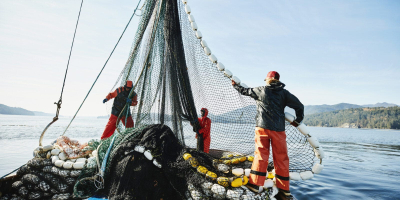
As fish populations decrease globally, researchers assert that the focus should be on working with other countries rather than on just local numbers. Why is that? Come, let's find out.
Political boundaries are the work of humans. Wildlife do not recognise them. And, fish are no different. Dwelling in water bodies, they freely cross countries. Studies have indicated that there a few fish species that "migrate over long distances". As it happens, fish egg and/or larvae may originate in one place and be carried to faraway places (this could be to even other countries), thanks to ocean currents. "Often one nation's fish stocks depend on the spawning grounds of a neighboring country, where fish release eggs and sperm into the water and Larvae hatch from fertilized eggs."
A recent study has discovered that "global fisheries are even more tightly connected than previously understood". With fish and spawn connected to several regions, the world's coastal marine fisheries are essentially "a single network", aided by ocean currents. Ocean current patterns vary with seasons. But, mostly these currents are sluggish (though there are a few regions where the currents are faster). Despite this, spawn can travel far. Here's an example. "Even a gentle current of 0.1 miles per hour can carry spawn 40 miles over a month, and some species can float for several months." Add to this the fact that different "fish species spawn in different seasons, and a single species may spawn in several months at different locations", and what we get is fish species in one country steadily arriving from or drifting to other countries over different periods of time.
So what happens is that if fish populations in one region dwindle. "the amount of fish spawn, or eggs and larvae, riding the ocean currents from there to other countries would also decline dramatically, resulting in further loss of fish elsewhere". To ensure food security and employment to those dependent on fishing, it is important for countries to understand this deep interconnectedness of global waters and chalk out ways to guard them.
Picture Credit : Google




